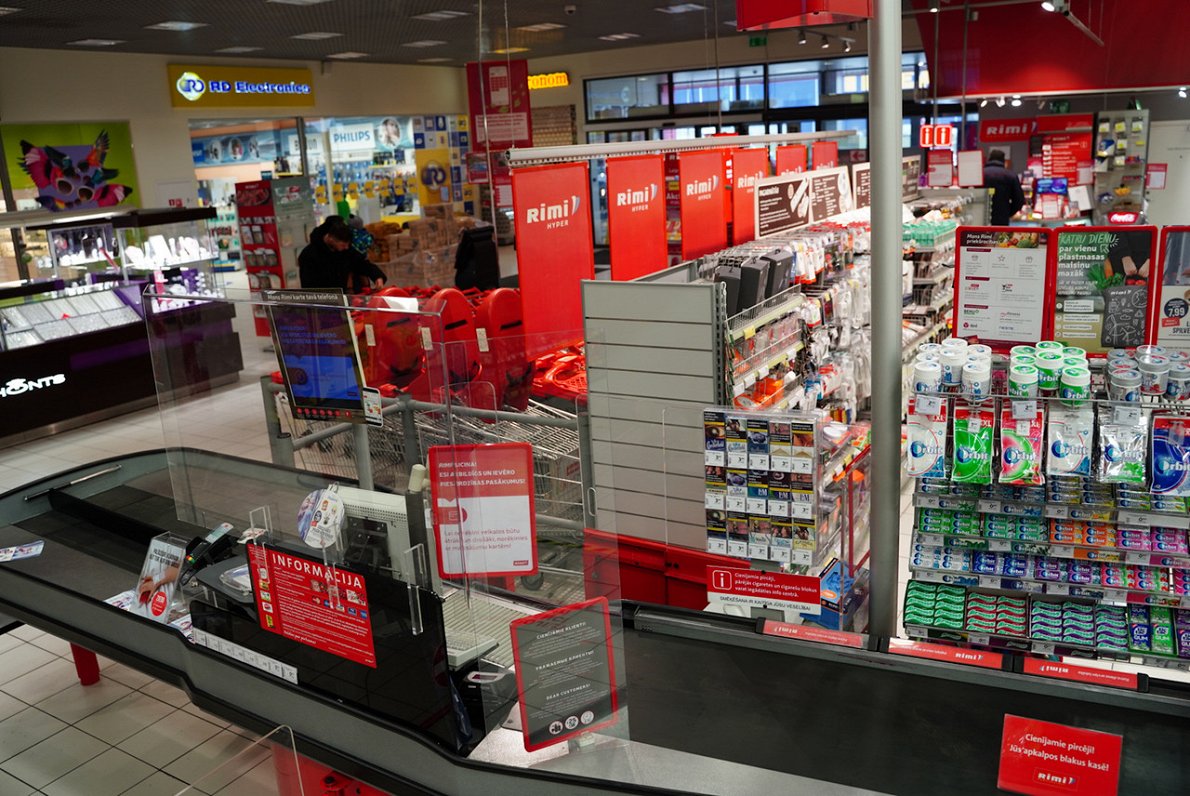The rise in inflation encourages Latvian residents to think more carefully about their shopping habits. Commodities with lower prices and sales are preferred, noted Rimi spokesman Juris Šleiers.
“Changes in shopper behavior are very noticeable. The Russian war in Ukraine began early in the spring and we saw a significant change in people's habits in the summer. Our survey data show that more than 80% of people started paying more attention to discounts and prices in stores. This is not just a phenomenon in Latvia. Data from McKinsey also show that 9 out of 10 people have changed their consumption habits at the European level, looking increasingly towards special offers and private brand goods,” Šleiers said.
Šleiers said that Rimi's house brand is gaining popularity among buyers.
Šleiers said: “Elsewhere in Europe, private brands take up to 80% of trademark shops. They are not yet such a popular segment in Latvia, but we see that these events have influenced the fact that people are starting to draw attention to private brands and starting to assess the fact that the brand is a good price for very good quality. It is also good news for those of our partners who produce products from the private trademark. Some categories include 100% of Latvian producers, others up to 70%.”
Also in the “Maxima” retail network, demand for this company's private trademark products is stable and growing, said Maxima spokeswoman Laura Bagātā.
Bagātā said: “The demand for potatoes has grown by 30%, which shows that more and more people are cooking at home. If buckwheat was demanded in the past, demand for a variety of alternatives, such as barley groats, various beans, is now increasing. People start looking more broadly, getting to know new products that can replace what they've used every day and which may have been less beneficial, perhaps a little more expensive. And at the moment, people seem to be following the price, but in fact, it is also a very good opportunity to diversify the menu and look at other products.”
Rimi's representative Šleiers said out that the buckwheat sales had not stopped – Rimi's sales had quadrupled. However, changes are observed in other product segments.
Šleiers said: “Until now, the most popular meat was chicken, but pork has taken its place because of the price. On the other hand, in the chicken meat segment, if breast was popular in the past, now it is chicken meat with bone."
However, producers also need to look for ways to save in the rising inflation, and there are a number of options.
The head of the Agricultural Market Promotion Center, Ingūna Gulbe, said: “[They] review recipes, change products, looking at whether it is possible to find any cheaper raw materials that could be used without changing the nature of the product itself, but in order to reduce the price. The packaging changes as well. Not so subtly. Maybe it's just a black box, there's no paper on top. The pack is no longer golden, or it is no longer so practical and convenient. There are many positions that can be reduced and all of this is done.”
Inara Šure, head of the Latvian Federation of Food Businesses, confirmed that entrepreneurs are trying to reduce costs, wherever possible, also delaying investment projects so that they can survive this time. It also reduces the range of products offered.
Food producers are also actively consuming energy types that are cheaper – switching from gas to propane gas, switching to woodchips, and installing solar panels as well.






























